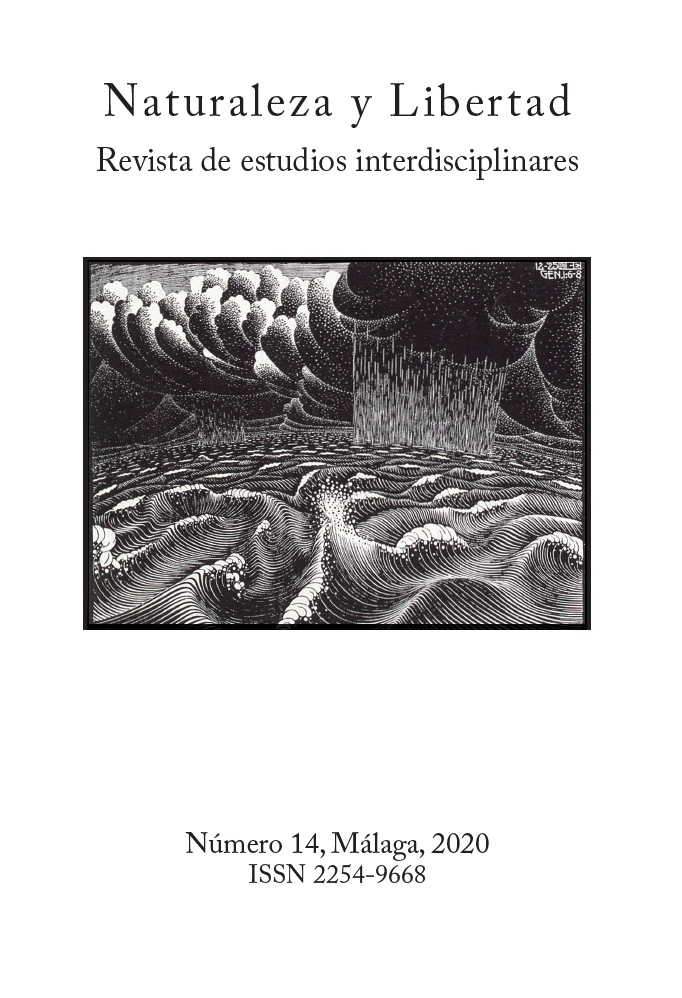Ontological and gnoseological prolegomena for a discussion about philosophical naturalism and its borders.
DOI:
https://doi.org/10.24310/NATyLIB.2020.v14i2.10732Keywords:
understanding, comprehension, explanation, justification, sphere of reality, existenceAbstract
I consider what we mean, or what is usually meant, by scientific knowledge is to a great extend a magic trick of language and conveys veiled implications. In the present paper I will try to identify, show and reveal some of the mechanisms which inspire or provoke the linguistic-psychological spell whereby the quality of objective reality is bestowed upon scientific knowledge and, by extension, upon its doctrinal derivatives, among them naturalism. Delving into the limits of the scientific comprehension of reality, I will then approach the limitations of naturalism itself, both as a philosophical doctrine and a programme wrapped in the false presumption of objectivity and the truth of scientific discourse.
Downloads
Metrics
Downloads
Published
How to Cite
Issue
Section
License
Those authors who have publications with this journal, accept the following terms:
1. Copyright and licensing information are clearly described on the journal’s web site: all content published in Naturaleza y Libertad is open acces without limit, and are subject to the Attribution-NonCommercial-ShareAlike 4.0 International (CC BY-NC-SA 4.0) license. The full text of which can be consulted at https://creativecommons.org/licenses/by-nc-sa/4.0/
2. It is the responsibility of the authors to obtain the necessary permissions for the images that are subject to copyright. The authors whose contributions are accepted for publication in this journal will retain the non-exclusive right to use their contributions for academic, research and educational purposes, including self-archiving or deposit in open access repositories of any kind. The electronic edition of this magazine is edited by the Editorial de la University of Malaga (UmaEditorial), being necessary to cite the origin in any partial or total reproduction.
3. This journal allows and encourages authors to publish papers on their personal websites or in institutional repositories, both before and after their publication in this journal, as long as they provide bibliographic information that accredits, if applicable, your posting on it.
4. In no case will anonymous papers be published.





18.png)













